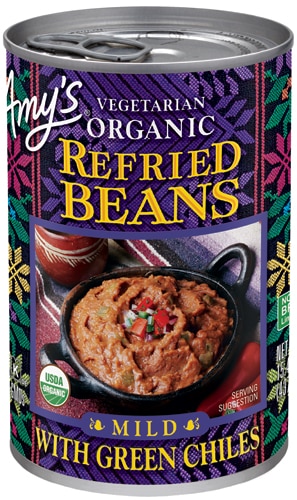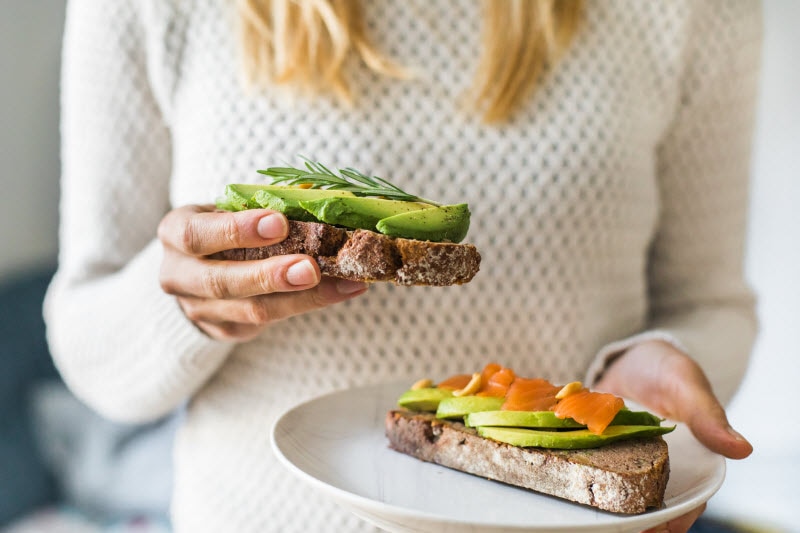Intuitive eating has gained a lot of popularity and media attention over the past few years. While the diet trends haven’t gone anywhere, more and more people are realizing that restrictive diets either aren’t working for them, or aren’t able to be sustained in the long term, and are therefore gaining interest in alternative approaches to eating to help manage their weight and health, and achieve their goals.
In fact, some recent headlines are saying that the latest diet trend is not dieting at all. Why? Perhaps because repeated research is showing that not only do diets not work in the long-term, but they can actually do more harm than good.
What is intuitive eating?
Enter intuitive eating, which is a non-diet approach to health that teaches you to tune in to your body’s internal cues, break the cycle of yo-yo dieting or strict-eating patterns, and to ultimately heal your relationship with food.
Unlike traditional diets, intuitive eating has nothing to do with restriction, calorie counting or even willpower.
Instead, it focuses on shifting the mindset associated with eating and building trust in your body’s innate signals. Intuitive eating has been found to be much more sustainable than traditional diets and is associated with a large number of benefits.
If you’ve ever found yourself feeling obsessed with food, struggling with guilt when eating things you think you “shouldn’t,” or feeling deprived of foods you love, it might be a good time to explore intuitive eating.
Intuitive eating principles
To clarify, these principles are NOT set “rules,” and there is no way to “fail” intuitive eating. The following are some simple guidelines to help you understand what practicing intuitive eating might look like.
- Reject the diet mentality
- Honor your hunger
- Make peace with food
- Challenge the food police
- Discover the satisfaction factor
- Feel your fullness
- Cope with your emotions with kindness
- Respect your body
- Exercise and feel the difference
- Honor your health with gentle nutrition
5 Myths about Intuitive Eating
Intuitive eating can sometimes seem too good to be true. How can you forget the diet rules that have been ingrained in your mind for so long and make peace with food? With practice, it IS possible.
Here are some common myths associated with intuitive eating (IE) and explanations for what makes them false.
1. It’s a diet to help you lose weight.
Weight is never the focus of intuitive eating. Intuitive eating is not a diet, but rather a way to remove the association of food with diet-based rules and instead start viewing food from the perspective of nourishment and satisfaction. Even though your weight may or may not change while following the principles, you WILL notice positive changes in your mindset and overall health.
2. Intuitive eating disregards health and is an “eat what you want, when you want” diet.
Intuitive eating doesn’t mean eating cookies and ice cream all day long. In fact, one of the principles is to honor your health with gentle nutrition. An intuitive eater eats not just for pleasure, but based on what makes them feel good both physically and mentally. This might mean choosing to eat a salad, for example, not because you “have to” but because you genuinely want to and like the way it makes you feel afterwards. Intuitive eating helps you get to know your body’s biological nutritional needs.
3. You can’t follow IE if you have special dietary needs or preferences.
Just because you CAN eat something doesn’t mean that you should if it's something you're intolerant to or it doesn't support a medical condition. If you have a chronic disease, you can still eat intuitively by choosing foods you desire that also benefit and protect your body. Intuitive eating is not an “all or nothing” style of eating, and it can work for people with specific dietary needs.
4. Having unconditional permission to eat means you’re going to binge forever.
While it's easy to think this is the case, it's simply not true. Sure, if cake has been forbidden from your diet for years and you now have given yourself permission to eat it, you may want it in larger portions and more frequently than you otherwise might. It’s true that temporary “binges” may occur when permission is finally granted, yet these binges are just that -- temporary. Once food no longer has a stigma associated with it, and you know you can eat it whenever you want without guilt, the desire to overeat will naturally fade away.
5. Intuitive eating involves tuning into your body but forgetting about your brain.
Intuitive eating involves both the body and the brain, not one or the other. There are many situations when your brain may tell you to eat even when your body is not actually “hungry”, such as a scheduled meal break or situation where you know you will not have a chance to eat later, and this is okay.
Getting started with intuitive eating
Intuitive eating is a revolutionary approach to health that has the ability to transform your relationship with food and your body. It has the ability to reduce stress associated with eating and instill mental freedom. It's impossible to “fail” at intuitive eating, and it's a way of eating that can truly be followed by anyone.
If you’re ready to get started, consider choosing one principle (above) and start implementing it into your life; then gradually work in the remaining principles over time.
Receiving support from a healthcare professional who is familiar with and trained in intuitive eating can also help you grasp the concepts and uniquely apply them to your lifestyle.




